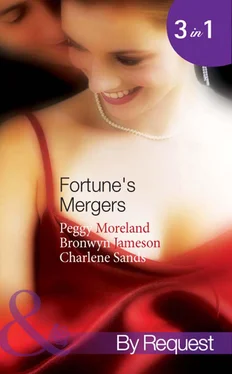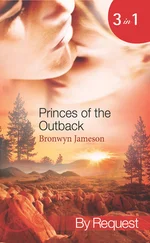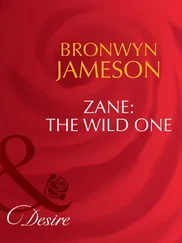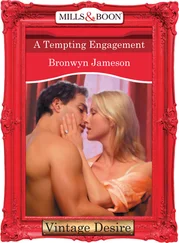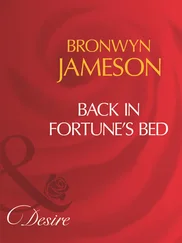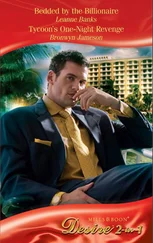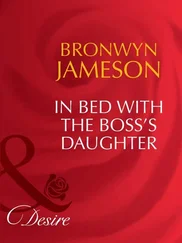Case caught the shower curtain in his hand. “Not at first, maybe, but she will eventually. Now, if you’ll excuse me,” he said and jerked the curtain into place, blocking his brother, as well as the guilt he was trying to heap on him. “I prefer to shower alone .”
He waited until the bathroom closed behind Creed, then snatched up the bar of soap and began to lather his chest.
Gina would thank him, he told himself. She’d never be happy married to a man like him. She was much too sensitive, too … fragile a woman to survive marriage to a man like Case. She needed someone who would dote on her, someone less selfish, less ambitious. Someone who would love her for who she was, not for what she brought to the bargaining table.
Do you love me?
With a groan, he slumped forward, bracing his hands against the tiled wall, hearing again the uncertainty in her voice, the hope, the need, when she’d posed the question. And how had he responded?
He hadn’t. He’d cleverly dodged her question, using the evasive tactics he’d honed razor sharp in the business world.
Creed was right, he thought miserably. His treatment of Gina was low, even for him.
While Case was dealing with his guilt, Curtis Reynolds sat at the head of the table in his spacious dining room, reading the morning paper. As usual, he was alone, a fact that had begun to bother him of late.
When he’d first read the morning’s headline, he was shocked to discover that his daughter and Case were engaged. But his shock had quickly given way to satisfaction.
About time his daughter married, he told himself, as he sipped his coffee—though, sadly, it was too late for him to gain anything from the union. He would’ve liked to have had grandchildren. Preferably a boy, but at this point in his life, he would’ve welcomed a girl.
Reminded of the disease that was quickly eating away at his body and his life, he sat his coffee cup down and sank back in his chair with a weary sigh. Odd how mortality changed a man, he thought glumly. A year ago he wouldn’t have given grandchildren a thought. Now that he was facing death, the things he’d once considered so important had lost some of their shine. More and more often he found himself thinking about his wife, his daughter, and the mistakes he’d made with both, rather than the business he’d dedicated his life to building.
Stretching out a hand, he dragged the newspaper from the table and to his lap, the picture of his daughter in full view. She’d developed into a beautiful woman, he thought with a smidgen of pride … and more than a little regret. Not the beauty her mother had been, but an attractive young woman, none the less.
How long had it been since he’d seen her last? he wondered. Ten years? Probably closer to twelve. The summer before she began college, she’d made a brief visit home. He remembered the visit well. The flash of temper she’d displayed when he’d told her he was leaving on a business trip the day after her arrival. But he’d seen hurt in her eyes, as well. The disappointment. And that’s the memory that haunted him now.
It hadn’t at the time, he thought sadly. He’d dismissed the guilt, just as he had each time he’d witnessed similar reactions from his wife. He’d done so by telling himself that his business was important, that all the time he spent building Reynolds Refining was for his family, his wife and daughter. Hadn’t he provided them a cushy life? A regal home, a respected place in society, the finest of everything money could buy?
But now that he was facing his mortality, he realized the mistakes he’d made, all that he’d lost, just as his wife had tried to tell him so many times in the past. He was fifty-seven years old, still young really, but alone in the world. He’d driven his wife to suicide by allowing his ambition to supercede her needs and destroyed whatever chance he might’ve had at a relationship with his daughter.
And for what? he asked himself in frustration. A damn company. Earlier that week, he’d heard a Country Western song on the radio that pretty well capsulized the lesson he’d learned. The guy had been singing something about there not being any luggage racks on a hearse.
How true, he acknowledged sadly. He’d dedicated his life to building and collecting things . And now that he was facing the end of his life, he realized the mistakes he’d made, the lives he’d damaged, all he’d lost. In chasing the illusive rainbow of success, he’d sacrificed what was most important.
Family.
He dropped his head back against the chair with a sigh. For a man who’d spent the majority of his life alone, he’d never once suffered loneliness.
But now that he was facing death, it seemed loneliness was his constant companion.
Конец ознакомительного фрагмента.
Текст предоставлен ООО «ЛитРес».
Прочитайте эту книгу целиком, купив полную легальную версию на ЛитРес.
Безопасно оплатить книгу можно банковской картой Visa, MasterCard, Maestro, со счета мобильного телефона, с платежного терминала, в салоне МТС или Связной, через PayPal, WebMoney, Яндекс.Деньги, QIWI Кошелек, бонусными картами или другим удобным Вам способом.
